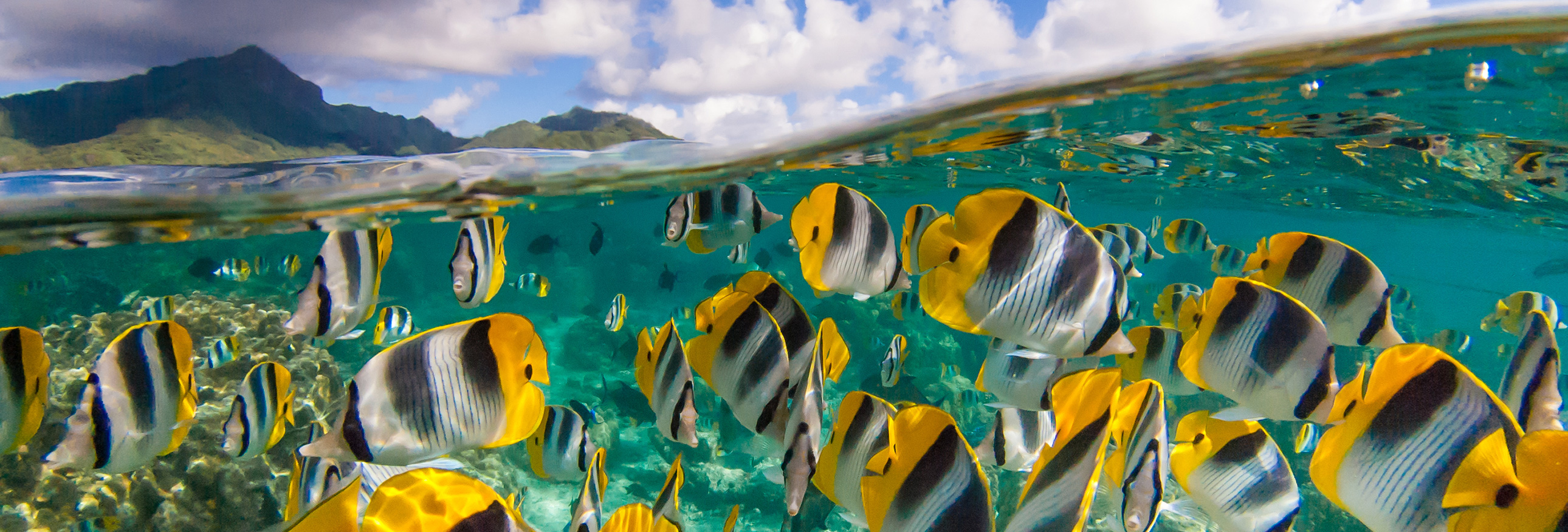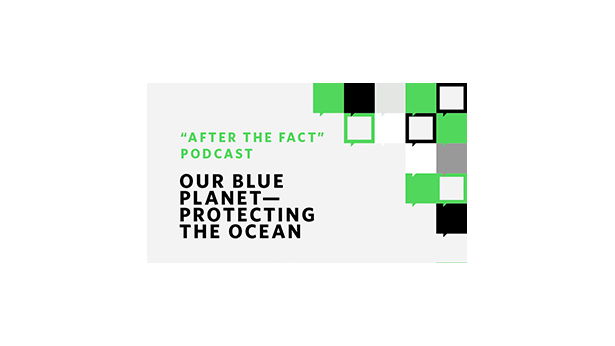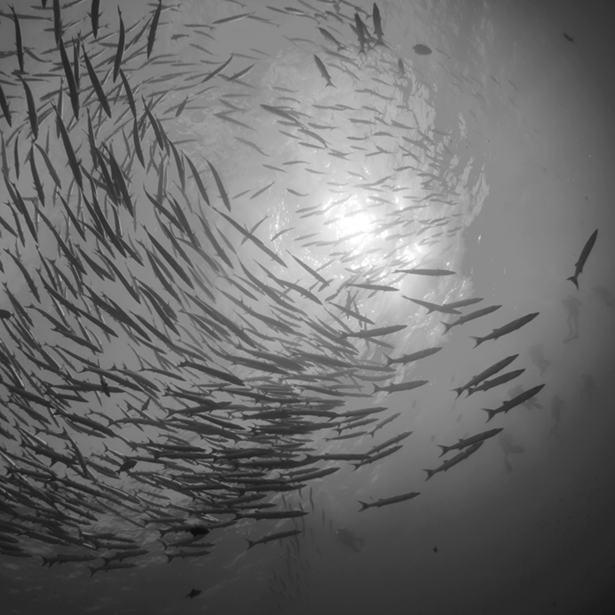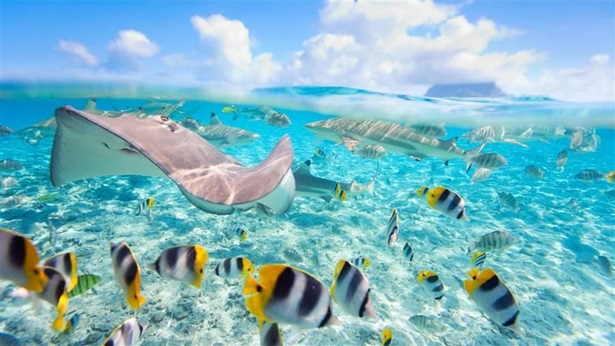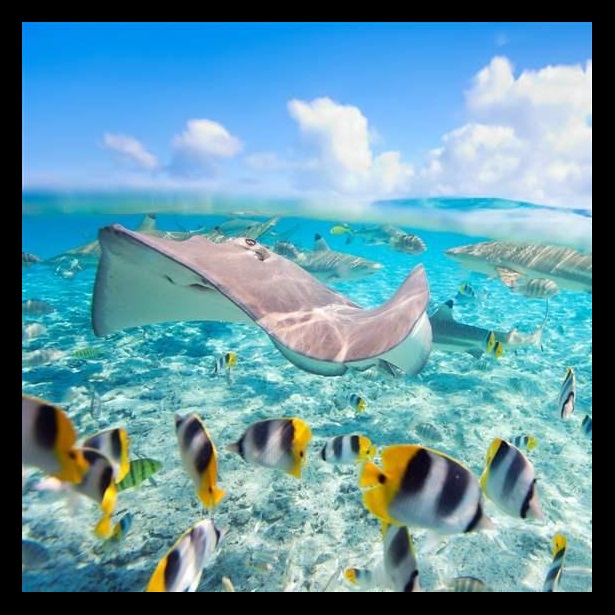The waters around French Polynesia, a French overseas territory in the South Pacific Ocean, make up the world’s largest contiguous exclusive economic zone.
At 5 million square kilometers (1.9 million square miles), the territory’s waters span an area as large as the landmass of the European Union. These vast and healthy waters are home to 21 species of sharks and an exceptional coral reef system that supports 176 coral and 1,024 fish species.
The mayors and communities of the Austral Islands, one of the five archipelagoes that make up French Polynesia, invited the Pew Bertarelli Ocean Legacy team to collaborate on efforts to designate a large-scale marine reserve in their waters.
In November 2013, the French Polynesian government committed to creating large marine protected areas in the waters around the Austral Islands (1 million square kilometers, or 386,100 square miles) and the Marquesas Islands (700,000 square kilometers, or 270,270 square miles). With continued support from islanders, President Édouard Fritch pledged in 2016 to implement by 2020 a marine managed area spanning all the waters of French Polynesia.
In April 2016, residents of the five inhabited islands of the Austral archipelago—with support from the Federation of the Polynesian Environmental Associations and The Pew Charitable Trusts—asked the central government in Tahiti to create a large, highly protected marine reserve in their waters.
In June 2020, French Polynesia’s Council of Ministers announced its intention to seek a biosphere reserve designation from the United Nations Educational, Scientific and Cultural Organization for the Austral archipelago by 2023. The council’s action reflects strong local support for establishing robust marine protections and if successful, could result in the creation of the largest biosphere reserve in the world.
Separately, Marquesas mayors have been working since 2012 to safeguard their waters. With support from local communities and the Pew Bertarelli Ocean Legacy Project, they formally proposed a 430,000 square kilometer (166,000 square mile) marine reserve to the central government in June 2018. This reserve would include an area for artisanal fishing to encourage economic development on the islands.
The Pew Bertarelli Ocean Legacy Project has worked closely with scientists, fishermen, environmental organizations, and local communities to develop marine protection scenarios in line with traditional Polynesian culture and community values.
Pew Bertarelli Ocean Legacy Project
The Pew Charitable Trusts and Dona Bertarelli created the Pew Bertarelli Ocean Legacy Project, with the shared goal of establishing the first generation of ecologically significant, large, and effective marine protected areas (MPAs) around the world. Today, the Pew Bertarelli Ocean Legacy Project also seeks to connect MPAs and help conserve key migratory species and entire marine ecosystems. These efforts build on more than a decade of work by Pew and the Bertarelli Foundation, led by Dona Bertarelli, to create large-scale, highly or fully protected MPAs. Between them, they have helped to obtain designations or commitments to safeguard nearly 12.6 million square kilometers (4.8 million square miles) of ocean by working with communities, local leaders, philanthropic partners, Indigenous groups, government officials, and scientists. Dona Bertarelli is a philanthropist, investor, sportswoman, and strong advocate for ocean conservation. The Pew Charitable Trusts is driven by the power of knowledge to solve today’s most challenging problems, including the need for effective marine conservation.
Project Goals
Austral community leaders and Marquesas mayors have submitted separate proposals to the French Polynesian government for marine protected areas covering the waters surrounding the two archipelagos, both with strong local support. The Pew Bertarelli Ocean Legacy Project continues to work with the government, communities, fishermen, and scientists to raise awareness about the importance of establishing marine protected areas.
